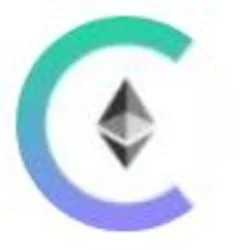The ‘Merge’ did not fix Ethereum

The writer is professor of law at the American University Washington College of Law
The Ethereum blockchain that facilitates much of the crypto world last month finally accomplished the long-promised and oft-delayed “Merge”, a technical switch in the way it works.
The Ethereum blockchain is one of the world’s most widely used digital ledgers, and is the main platform for Web3, non-fungible tokens, and decentralised finance. While the Merge is unequivocally good news for the environment, it brings the Ethereum blockchain’s other problems into even starker relief.
Rather than relying on centralised intermediaries such as a bank to approve transactions, blockchains rely on what is known as a “consensus mechanism”.
Before the Merge, Ethereum used the “proof-of-work” consensus mechanism. This involves so-called “miners” using enormous amounts of electricity to power computers to make repeated guesses of the number that will allow them to add a block of transactions to the blockchain. The winning miners are then compensated with cryptocurrency for their work.
The bitcoin blockchain still does it this way. Verification of bitcoin transactions uses more energy than entire countries like Norway; in areas where lots of bitcoin mining occurs, local populations have suffered from rising energy costs and noise pollution.
Ethereum’s shift to a “proof-of-stake” system avoids these environmental costs. Ethereum now uses an algorithm that randomly selects someone to create a new block to add to the blockchain. The party is chosen from those who have staked their ether (the Ethereum blockchain’s native coin) for the chance to do the work and be compensated for it. The more ether someone stakes, the more likely they are to be chosen to create the new block.
This creates incentives to acquire even more ether, and it seems reasonable to predict that any blockchain that relies on proof-of-stake will start to concentrate the ability to process transactions in just a few hands. Staking is already a highly centralised business involving some of the industry’s largest companies, such as Coinbase, according to data provider Nansen. More centralisation seems inevitable.
Remember that the whole point of having a blockchain with a consensus mechanism is to avoid having to rely on centralised intermediaries to verify transactions. Without meaningful decentralisation, one has to wonder if all the other problems associated with Ethereum are worth it.
For example, the Ethereum blockchain is notorious for congestion at peak times, which manifests in slower transaction processing times and fluctuating transaction fees (which are known as “gas fees”). At peak times, gas fees can be prohibitive for users trying to complete smaller transactions (in May 2022, average daily gas fees reached nearly $200), but the Merge has not changed the way gas fees are calculated or charged.
Such congestion adds to another problem. Users can pay validators higher fees to have their order executed first within a block of transactions. This is a cost on users which benefits the bigger validators which will be chosen to create more blocks of transactions, and will therefore have more opportunities to pocket higher fees. A validator may even insert their own transaction ahead of others in order to profit from market movements, a practice known as MEV or “maximal extractable value”.
The Merge will also not make the blockchain more secure. Ethereum’s claims that it will do this assume that the Merge will increase decentralisation. But if the reverse is true, there are risks. A report commissioned by the US Defense Advanced Research Projects Agency found proof-of-stake blockchains can be successfully manipulated if the number of validators is too small.
The shift to proof-of-stake also increases the legal uncertainty around the status of ether. Prior to the Merge, US Senator Debbie Stabenow proposed a bill that lists ether as an example of a “digital commodity” falling outside of the Securities and Exchange Commission’s jurisdiction (in the US, securities are regulated by the SEC, whereas the Commodity Futures Trading Commission has oversight over the commodities markets).
However, now that stakers pool their ether together in the hope of being compensated from the Ethereum blockchain’s gas fees, a stronger case can be made that ether are securities and not commodities. The SEC might have something to say about Ethereum’s claims about its decentralisation and its benefits.




































































































